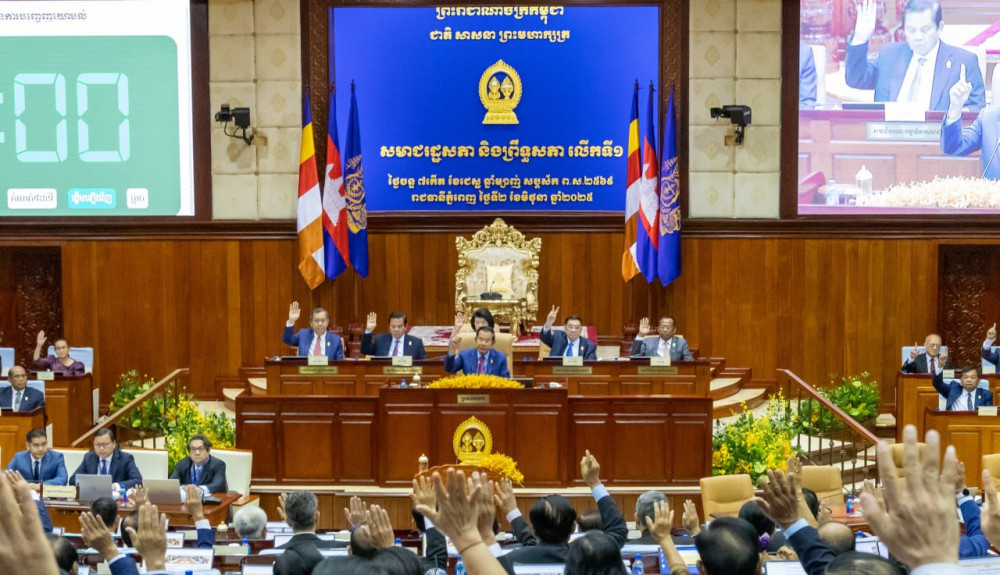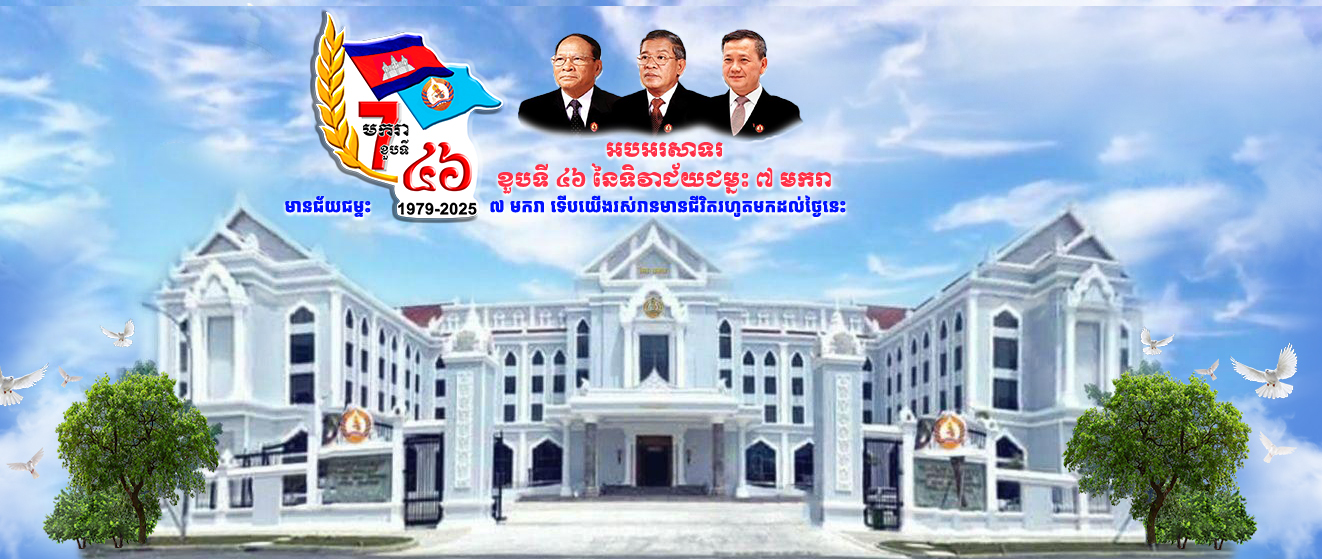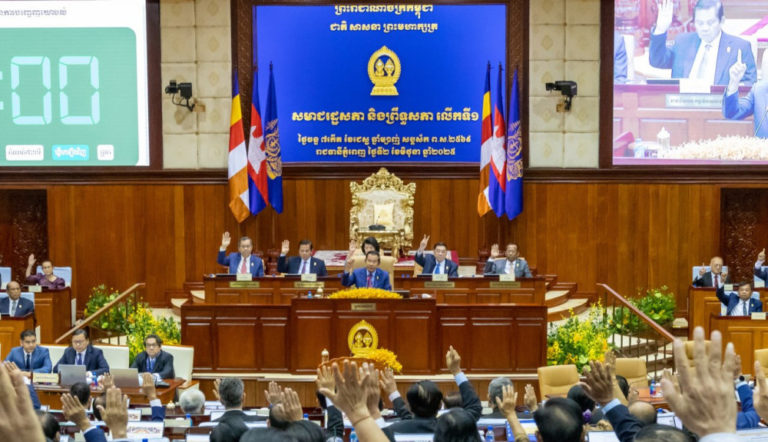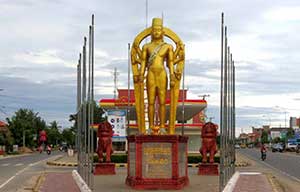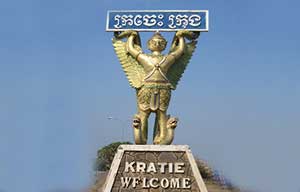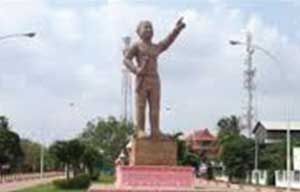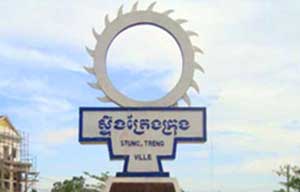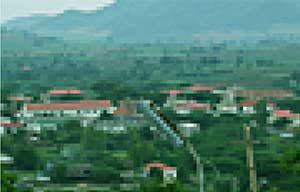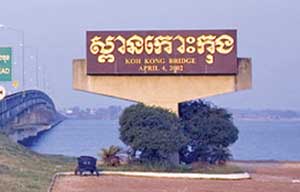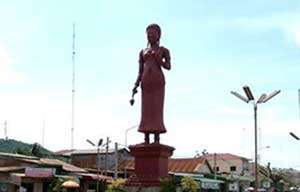The inaugural session of the National Assembly-Senate Congress adopted two key draft Resolutions — on social protection systems and the informal economy — during its first day of deliberations on June 2.
The meeting, which lasted from 8:00 a.m. until midnight, was held under the chairmanship of Samdech Akka Moha Sena Padei Techo Hun Sen, President of the Senate.
According to the National Assembly’s news release, the Resolution on social protection systems affirms the Royal Government’s strategic priorities in strengthening the country’s social protection system, viewing it as essential to national resilience and sustainable development.
The Congress commended government efforts to deliver essential services to vulnerable populations, emphasising that social protection must evolve with changing socio-economic realities.
A central focus of the Resolution is to endorse a whole-of-society approach — integrating government agencies, civil society, and citizens — in designing and implementing social protection policies.
The Congress called for the expansion of universal health coverage, social security schemes, and pension reforms aimed at creating a sustainable safety net that enhances resilience against economic shocks.
Furthermore, the Resolution stressed the importance of ongoing legal reforms to strengthen the institutional framework, urging both legislative chambers to support future legislative initiatives that respond to emerging challenges in social protection.
These reforms were seen as crucial for ensuring that policies remain adaptive, inclusive, and capable of safeguarding vulnerable groups.
This Resolution underscored Cambodia’s commitment to positioning social protection as a strategic pillar within its long-term development vision by mainstreaming inclusive policies that ensure no one is left behind and fostering a resilient society capable of confronting socio-economic changes.
Moreover, it seeks to propel the ongoing moderniSation of Cambodia’s social protection system — aligning it with national priorities of sustainability, social equity, and resilience — thus reinforcing the country’s trajectory toward a high-income country by 2050.
Regarding the second Resolution, the National Assembly and Senate endorsed and expressed appreciation for the Royal Government’s National Strategy for Informal Economic Development 2023–2028, describing it as a timely and appropriate response to Cambodia’s current and future economic and social context during the 7th legislative mandate.
The Congress praised the government’s initiatives to promote, support, and empower citizens engaged in the informal economy by creating opportunities for business development and improving living standards. Notably, the government has implemented significant measures, including the sub-decree on the registration of informal economy workers, the creation of a digital platform for registration, support measures in taxation, vocational training, social protection, finance, and banking, and monitoring and evaluation mechanisms.
Samdech Moha Borvor Thipadei Hun Manet, Prime Minister of the Kingdom of Cambodia, informed the Congress that the government had launched the National Strategy for Informal Economic Development 2023–2028 as the fourth of six priority policy programmes. Its goal is to enable participants in the informal economy to grow, integrate into the formal system, and access the country’s social protection benefits.
According to the Cambodian Labour Force Survey2019, of the estimated 7.9 million members of the national labour force, only 21.5 percent (1.7 million) work in the formal economy, while the vast majority — 6.2 million — are employed in the informal sector. Most informal workers lack access to essential services, leaving them particularly vulnerable during times of crisis.
As of June 2, 2025, a total of 80,421 informal economy actors have submitted applications through the digital platform, including 3,246 employees of micro-enterprises, 1,773 micro-enterprises, and 75,401 self-employed individuals, pointed out the Ministry of Industry, Science, Technology & Innovation (MISTI).
The National Strategy for Informal Economic Development is a strategic tool of the Royal Government aimed at enhancing the integration of informal economy into the formal sector in a sustainable manner, enabling them to actively contribute to national economic growth, MISTI underlined.
The National Assembly-Senate Congress continues this morning to deliberate on the final agenda item: the agricultural sector.
